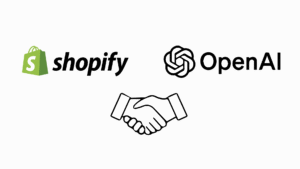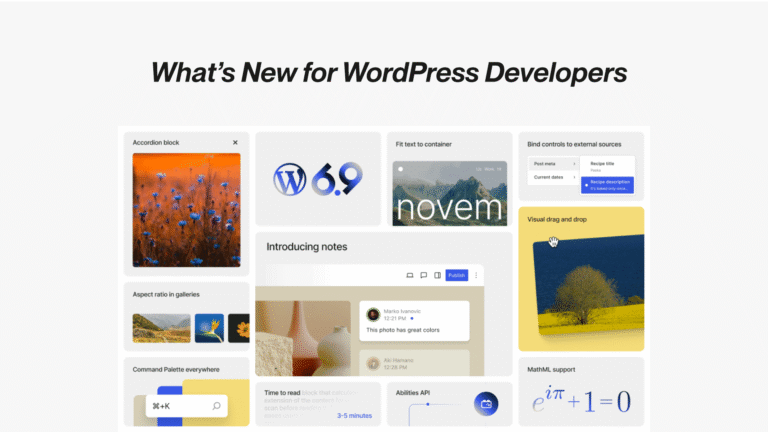Discover the
Modern
WordPress with WordVell

Shopify’s Big AI Move with OpenAI: Should WooCommerce Do the Same?
The online shopping world is talking about a big new team-up between Shopify and OpenAI, the creators of ChatGPT. This partnership is changing how we buy things online, and it raises a big question: should Shopify's main competitor, WooCommerce, make a similar move?
Let’s break down what this partnership means, what WooCommerce is doing with AI, and what this all means for the future of online stores.
Shopify and OpenAI: A New Way to Shop
Shopify has teamed up with OpenAI to bring powerful artificial intelligence (AI) tools to its sellers. The biggest feature is something called “Instant Checkout” right inside ChatGPT.
Here’s how it works: Imagine you’re chatting with ChatGPT and ask for advice on new running shoes. Now, ChatGPT can not only give you suggestions but also let you buy a pair from a Shopify store without ever leaving the chat. It makes buying things online super easy and fast.
How does this work? Behind the scenes, Shopify connects its stores’ product lists and payment systems to OpenAI. This allows ChatGPT to get real-time information like prices and if an item is in stock. When you decide to buy, the purchase is handled securely by Shopify’s system.
Shopify’s CEO, Tobi Lütke, shared his excitement about this on X (formerly Twitter):
“We’ve been working with @OpenAI for a while on a magic-like shopping experience. It’s now rolling out. Generative AI is one of the most important things of our lifetime and I’m happy that Shopify merchants will be some of the first to have it.”
Business owners using Shopify are also excited. The founder of a popular clothing store said in a press release:
“The ability to have our products… purchased directly within ChatGPT is a game-changer. It meets customers where they are and removes friction from the buying process.”
What is WooCommerce Actually Doing in AI?
While Shopify is making headlines with its big-name partnership, WooCommerce is quietly building a powerful AI foundation for its users with MCP for WooCommerce, focusing on choice and flexibility rather than a single, built-in solution.
As an open-source platform deeply integrated with WordPress, WooCommerce’s strategy is to empower its community of developers to create a diverse and competitive marketplace of AI tools.
Instead of one big AI partner, WooCommerce store owners can choose from a rapidly growing list of specialized AI plugins. Here’s a more detailed look at what’s available:
- Advanced Product Recommendations: Beyond simple suggestions, plugins like Recommendation Engine for WooCommerce use machine learning algorithms to analyze customer behavior, what they view, what they add to their cart, and what they ultimately buy, to create sophisticated, personalized recommendations similar to those on Amazon. This can significantly increase the average order value.
- Generative AI for Content: Tools like AI Product Descriptions for WooCommerce and WooCommerce Product Content AI directly integrate with services like OpenAI’s GPT models. This allows sellers to automatically generate compelling, SEO-friendly product titles, descriptions, and even blog posts with just a few clicks, saving hours of manual work.
- Intelligent and Predictive Search: Standard search bars can be clumsy. AI-powered search plugins like Doofinder or FiboSearch offer features like typo tolerance (autocorrection), predictive search (showing results as you type), and image search. They learn from user search patterns to continuously improve results, making it faster for customers to find what they’re looking for.
- Smarter Customer Support: AI chatbots available for WooCommerce, such as Tidio or ChatBot for WooCommerce, have evolved beyond simple Q&A. They can now access order data to provide real-time shipping updates, handle return requests, and even guide customers through the checkout process, freeing up human support agents for more complex issues.
- AI-Powered Security and Fraud Prevention: Plugins like CleanTalk or Signifyd use AI to analyze thousands of data points for each transaction, including location, IP address, and purchase behavior, to calculate a risk score in real-time. This allows them to automatically block fraudulent orders before they are even processed, protecting a store’s revenue.
While WooCommerce itself hasn’t announced a central AI feature akin to Shopify Magic, its parent company, Automattic, is heavily invested in AI. They are actively integrating AI features across their products, including WordPress.
This suggests a future where more native AI capabilities will likely be introduced directly into WooCommerce, complementing the vast ecosystem of third-party plugins that already exists.
Who’s Winning? A Look at the Numbers
When it comes to market share, the battle between Shopify and WooCommerce is fascinating because they dominate in different ways.
- Shopify: According to recent statistics from sources like BuiltWith, Shopify holds approximately 23% of the e-commerce platform market share in the United States. Its all-in-one, subscription-based model makes it incredibly popular with small to medium-sized businesses that prioritize ease of use. Globally, Shopify powers over 4 million online stores, a number that reflects its massive and growing user base.
- WooCommerce: WooCommerce’s strength lies in its sheer numbers. Because it is a free plugin for WordPress (which itself powers over 43% of all websites on the internet), WooCommerce is the most widely used e-commerce platform in the world. Data shows that WooCommerce powers around 15% of all e-commerce websites globally. Its open-source nature makes it the top choice for businesses that want complete control, endless customization, and the ability to build a truly unique store.
In short, while Shopify has a strong grip on the market, especially in North America, WooCommerce has a larger global footprint due to its integration with WordPress. Shopify’s new AI features could be a powerful tool to attract more users, but WooCommerce’s flexible and community-driven approach to AI allows its users to build a custom-tailored intelligent store right now.
The Future of Online Shopping is Smart
The Shopify and OpenAI partnership shows us what’s next for e-commerce. The future of online shopping will be:
• More Conversational: You’ll be able to “talk” to online stores through AI assistants to find and buy what you need.
• More Personal: AI will learn what you like and show you products and deals that are perfect for you.
• Easier for Sellers: AI will handle many of the boring tasks of running a store, so owners can focus on growing their business.
So, Should WooCommerce Find a Big AI Partner?
This is the big question. On one hand, teaming up with a company like OpenAI could help WooCommerce compete directly with Shopify’s new tools.
On the other hand, WooCommerce’s biggest strength is its flexibility and the huge community of developers who build tools for it.
Forcing one AI partner on everyone might go against what makes WooCommerce special. It might be smarter for them to keep supporting their community to create many different AI options for users to choose from.
No matter what WooCommerce decides, one thing is certain: AI is changing e-commerce forever. Shopify has made a bold move, and everyone is watching to see what happens next in the exciting world of online shopping.



